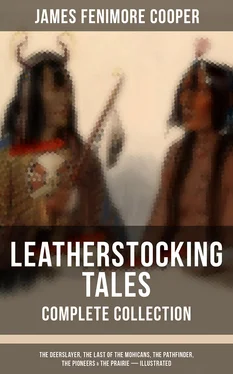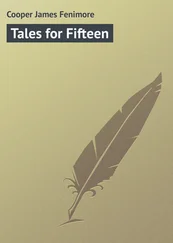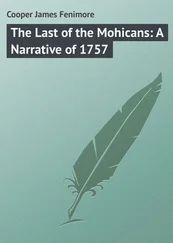Cooper was not wholly without humor; it is sometimes found lurking in the dialogue of Harvey Birch, and of Leatherstocking but it forms no considerable element in his works; and if it did, it would have stood in the way of his universal popularity; since of all qualities, it is the most difficult to transfuse into a foreign language. Nor did the effect he produced upon the reader depend on any grace of style which would escape a translator of ordinary skill. With his style, it is true, he took great pains, and in his earlier works, I am told, sometimes altered the proofs sent from the printer so largely that they might be said to be written over Yet he attained no special felicity, variety, or compass of expression. His style, however, answered his purpose; it has defects, but it is manly and clear, and stamps on the mind of the reader the impression he desired to convey. I am not sure that some of the very defects of Cooper’s novels do not add, by a certain force of contrast, to their power over the mind. He is long in getting at the interest of his narrative. The progress of the plot, at first, is like that of one of his own vessels of war, slowly, heavily, and even awkwardly working out of a harbor. We are impatient and weary, but when the vessel is once in the open sea, and feels the free breath of heaven in her full sheets, our delight and admiration is all the greater at the grace, the majesty, and power with which she divides and bears down the waves, and pursues her course, at will, over the great waste of waters.
Such are the works so widely read, and so universally admired, in all the zones of the globe, and by men of every kindred and every tongue; works which have made of those who dwell in remote latitudes, wanderers in our forests, and observers of our manners, and have inspired them with an interest in our history. A gentleman who had returned from Europe just before the death of Cooper, was asked what he found the people of the Continent doing. “They all are reading Cooper,” he answered; “in the little kingdom of Holland, with its three millions of inhabitants, I looked into four different translations of Cooper in the language of the country.” A traveller, who has seen much of the middle classes of Italy, lately said to me, “I found that all they knew of America, and that was not little, they had learned from Cooper’s novels; from him they had learned the story of American liberty, and through him they had been introduced to our Washington; they had read his works till the shores of the Hudson, and the valleys of Westchester, and the banks of Otsego lake, had become to them familiar ground.”
Over all the countries into whose speech this great man’s works have been rendered by the labors of their scholars, the sorrow of that loss which we deplore is now diffusing itself. Here we lament the ornament of our country, there they mourn the death of him who delighted the human race. Even now, while I speak, the pulse of grief which is passing through the nations has haply just reached some remote neighborhood; the news of his death has been brought to some dwelling on the slopes of the Andes, or amidst the snowy wastes of the North, and the dark-eyed damsel of Chile, or the fair-haired maid of Norway, is sad to think that he whose stories of heroism and true love have so often kept her for hours from her pillow, lives no more.
He is gone! but the creations of his genius, fixed in living words, survive the frail material organs by which the words were first traced. They partake of a middle nature, between the deathless mind and the decaying body of which they are the common offspring, and are, therefore, destined to a duration, if not eternal, yet indefinite. The examples he has given in his glorious fictions, of heroism, honor, and truth, of large sympathies between man and man, of all that is good, great, and excellent, embodied in personages marked with so strong an individuality that we place them among our friends and favorites; his frank and generous men, his gentle and noble women, shall live through centuries to come, and only perish with our language. I have said with our language; but who shall say when it may be the fate of the English language to be numbered with the extinct forms of human speech? Who shall declare which of the present tongues of the civilized world will survive its fellows? It may be that some one of them, more fortunate than the rest, will long outlast them, in some undisturbed quarter of the globe, and in the midst of a new civilization. The creations of Cooper’s genius, even now transferred to that language, may remain to be the delight of the nations through another great cycle of centuries, beginning after the English language and its contemporaneous form of civilization shall have passed away.
Table of Contents
THE DEERSLAYER:
The First War Path
Table of Contents
Chapter I
Chapter II
Chapter III
Chapter IV
Chapter V
Chapter VI
Chapter VII
Chapter VIII
Chapter IX
Chapter X
Chapter XI
Chapter XII
Chapter XIII
Chapter XIV
Chapter XV
Chapter XVI
Chapter XVII
Chapter XVIII
Chapter XIX
Chapter XX
Chapter XXI
Chapter XXII
Chapter XXIII
Chapter XXIV
Chapter XXV
Chapter XXVI
Chapter XXVII
Chapter XXVIII
Chapter XXIX
Chapter XXX
Chapter XXXI
Chapter XXXII
Table of Contents
“There is a pleasure in the pathless woods,
There is a rapture on the lonely shore.
There is society where none intrudes,
By the deep sea, and music in its roar:
I love not man the less, but nature more,
From these our interviews, in which I steal
From all I may be, or have been before,
To mingle with the universe, and feel
What I can ne’er express, yet cannot all conceal”
—Childe Harold
On the human imagination events produce the effects of time. Thus, he who has travelled far and seen much is apt to fancy that he has lived long; and the history that most abounds in important incidents soonest assumes the aspect of antiquity. In no other way can we account for the venerable air that is already gathering around American annals. When the mind reverts to the earliest days of colonial history, the period seems remote and obscure, the thousand changes that thicken along the links of recollections, throwing back the origin of the nation to a day so distant as seemingly to reach the mists of time; and yet four lives of ordinary duration would suffice to transmit, from mouth to mouth, in the form of tradition, all that civilized man has achieved within the limits of the republic. Although New York alone possesses a population materially exceeding that of either of the four smallest kingdoms of Europe, or materially exceeding that of the entire Swiss Confederation, it is little more than two centuries since the Dutch commenced their settlement, rescuing the region from the savage state. Thus, what seems venerable by an accumulation of changes is reduced to familiarity when we come seriously to consider it solely in connection with time.
This glance into the perspective of the past will prepare the reader to look at the pictures we are about to sketch, with less surprise than he might otherwise feel; and a few additional explanations may carry him back in imagination to the precise condition of society that we desire to delineate. It is matter of history that the settlements on the eastern shores of the Hudson, such as Claverack, Kinderhook, and even Poughkeepsie, were not regarded as safe from Indian incursions a century since; and there is still standing on the banks of the same river, and within musket-shot of the wharves of Albany, a residence of a younger branch of the Van Rensselaers, that has loopholes constructed for defence against the same crafty enemy, although it dates from a period scarcely so distant. Other similar memorials of the infancy of the country are to be found, scattered through what is now deemed the very centre of American civilization, affording the plainest proofs that all we possess of security from invasion and hostile violence is the growth of but little more than the time that is frequently fulfilled by a single human life.
Читать дальше












